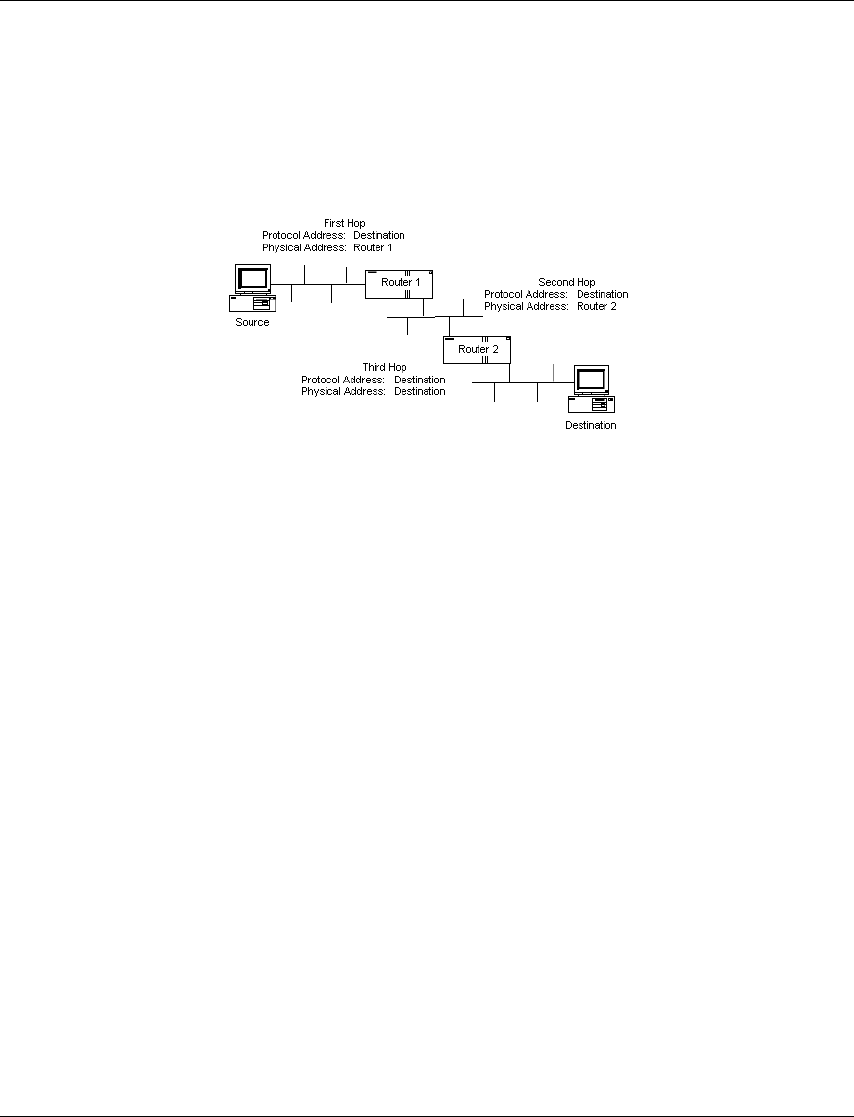
Chapter 12 Avaya P330 Layer 3 Features
84 Avaya P332GT-ML User’s Guide
forward the packet, it changes the packet destination’s physical address to that of
the next hop and transmits the packet.
The next hop may or may not be the ultimate destination host. If not, the next hop is
usually another router, which executes the same switching decision process. As the
packet moves through the internetwork, its physical address changes but its
protocol address remains constant. This process is illustrated in the figure below.
Figure 12.1 Routing
The relation between the destination host’s protocol address and its physical
address is obtained by the routers using the ARP request/reply mechanism, and the
information is stored within the ARP table in the router (see “The ARP Table“ on
page 111).
Within an enterprise, routers serve as an intranet backbone that interconnects all
networks. This architecture strings several routers together via a high-speed LAN
topology such as Fast Ethernet or Gigabit Ethernet. Within the global Internet,
routers do all the packet switching in the backbones.
Another approach within an enterprise is the collapsed backbone, which uses a
single router with a high-speed backplane to connect the subnets, making network
management simpler and improving performance.


















